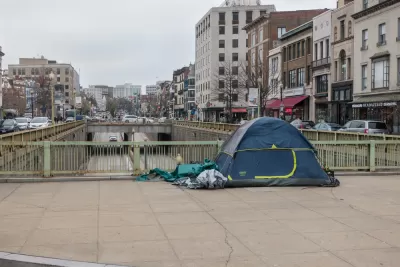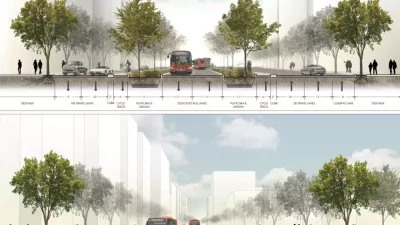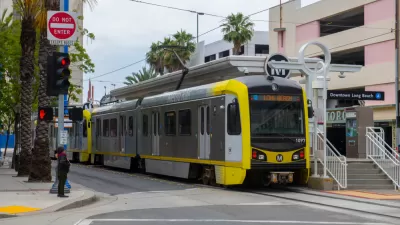Washington, D.C. is looking to build on some past success, and recover from some setbacks, with the adoption of a new plan to address homelessness called Homeward 2.0.

"Mayor Muriel Bowser last week released the next five-year phase of her plan to end homelessness entirely in the District by 2025," reports Chelsea Cirruzzo.
The new plan, called Homeward 2.0, will have to work extra hard to overcome the setbacks dealt during the pandemic to an earlier version of the plan.
"Authored by the Interagency Council on Homelessness, the plan recommends further investment in permanent supportive housing, a program that provides chronically homeless people who meet certain eligibility requirements with a long-term housing subsidy," explains Cirruzzo. "It also introduces a focus on racial equity, a guiding principle born out of lessons learned from the original plan. And while D.C. has been relatively successful in its approach to housing families, advances in tackling single individual homelessness have lagged, prompting a sharper focus in the new plan."
More background and insight on Homeward 2.0 are included in the source article.
FULL STORY: D.C. Just Released The Next Phase Of Its Plan To End Homelessness. Here’s What’s In It

Maui's Vacation Rental Debate Turns Ugly
Verbal attacks, misinformation campaigns and fistfights plague a high-stakes debate to convert thousands of vacation rentals into long-term housing.

Planetizen Federal Action Tracker
A weekly monitor of how Trump’s orders and actions are impacting planners and planning in America.

In Urban Planning, AI Prompting Could be the New Design Thinking
Creativity has long been key to great urban design. What if we see AI as our new creative partner?

King County Supportive Housing Program Offers Hope for Unhoused Residents
The county is taking a ‘Housing First’ approach that prioritizes getting people into housing, then offering wraparound supportive services.

Researchers Use AI to Get Clearer Picture of US Housing
Analysts are using artificial intelligence to supercharge their research by allowing them to comb through data faster. Though these AI tools can be error prone, they save time and housing researchers are optimistic about the future.

Making Shared Micromobility More Inclusive
Cities and shared mobility system operators can do more to include people with disabilities in planning and operations, per a new report.
Urban Design for Planners 1: Software Tools
This six-course series explores essential urban design concepts using open source software and equips planners with the tools they need to participate fully in the urban design process.
Planning for Universal Design
Learn the tools for implementing Universal Design in planning regulations.
planning NEXT
Appalachian Highlands Housing Partners
Mpact (founded as Rail~Volution)
City of Camden Redevelopment Agency
City of Astoria
City of Portland
City of Laramie





























